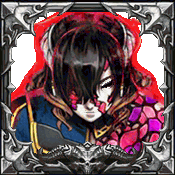Post by cnaltman62 on Jul 4, 2018 14:03:36 GMT -6
I apologize for posting this so many days later than I probably should have, but I needed some time to really gather my thoughts in a coherent, if still a bit messy, manner (and here's my warning that this post will be a bit long and rambling). But the story presentation in the demo is a bit "lacking," for lack of a better word.
Despite the amount of words used, the length of the dialogue between Miriam and Johannes near the start, the intro to the game feels very rushed. For starters, it's 2018. Opening text crawls will no longer cut it. They were fine years ago when technical limitations restricted the use of complicated cutscenes to provide backstory, but we have the technology to show pretty much whatever you want now. Text is dry and clinical, there's no weight to it, and this has a detrimental impact on the rest of the story because it doesn't give the player any emotional context to those events.
For examples of some things just in the demo that are affected by this:
Johannes's desire to atone for the sins committed by the alchemist's guild by helping Miriam doesn't really mean anything to the player because all we have to go on with regards to those crimes is a few lines of text and some minimal dialogue.
Gebel's introduction especially falls flat. The dialogue in this scene indicates that he and Miriam are old friends and she's confused and hurt by his dark turn now, but again, to the player, there's no context for this. Miriam says a couple of lines about how he helped her once, and that's it. There's no impact.
It reminds me very much of the ending of Castlevania: Lament of Innocence. That game similarly opened with a text crawl providing years' worth of backstory. Then at the end of the game, Mathias appears and reveals that everything that happened in the game was his plan. And this means absolutely nothing to the player because this is the first time that Mathias has appeared in-person throughout the entire game. And because all the events that led to his actions happened in that opening text crawl, it all feels forced and lame due to the lack of emotional context. If we had actually seen all of those things happen, then Mathias's betrayal would have not only made more sense, but it would have felt more like an appropriate punch in the gut to the player, as much as it does to Leon. But because it was all in text, it's just a thing that happens rather than the big tragic ending that it should be.
Order of Ecclesia has the same problem: Shanoa and Albus's relationship means nothing to the player because they shared about 20 seconds of screen time before Albus's betrayal. Even if there had just been flashbacks throughout the game of them growing up together, it would have been enough to make it mean something when Albus sacrifices himself in the ending, rather than it just being, again, a thing that happens.
Going back to Bloodstained, imagine this:
Replace the opening text crawl with actual cutscenes depicting the events in question. Show the alchemists creating the shardbinders. Show them being sacrificed. Show the demons causing immense destruction. Show how they were sealed away and peace restored.
Most importantly, show how Miriam and Gebel specifically became shardbinders, how Miriam almost gave up on humanity until Gebel reassured her, and how she was sealed away for ten years. Maybe you could even have some brief playable sections here, to give the player an early preview of the combat, give them a taste of some of the cool stuff they'll be able to do later on in the game, and/or provide some tutorials.
Then you can have a "TEN YEARS LATER..." screen and move to the scene with Miriam and Johannes talking on the ship. And because the player is already familiar with the past events from the prior scenes, you can even cut down the length of the conversation significantly so that it's paced better.
And then when Miriam sees Gebel for the first time in ten years, the player actually has the context for their relationship. And Miriam's confusion and pain is both understandable to and shared by the player. The scene can actually have the desired emotional impact, rather than just serving to set up the plot.
Just think along those lines, basically. All that the story in a game needs to do, strictly speaking, is provide a reason for the action, but all of the game stories that are truly memorable, that stick with you for years afterward, are stories where the player is given a reason to care and invest in the characters and the world. It all comes down to one simple rule: show, don't tell. If you ever have a choice between text-based exposition and having a full cutscene, always go with the cutscene.
Considering that the voice acting already wrapped, it's probably far too late to do anything about this for Bloodstained, but I wanted to share my thoughts here anyway, in case it can maybe make a difference in the next game, if this ends up turning into a franchise.






 yey
yey